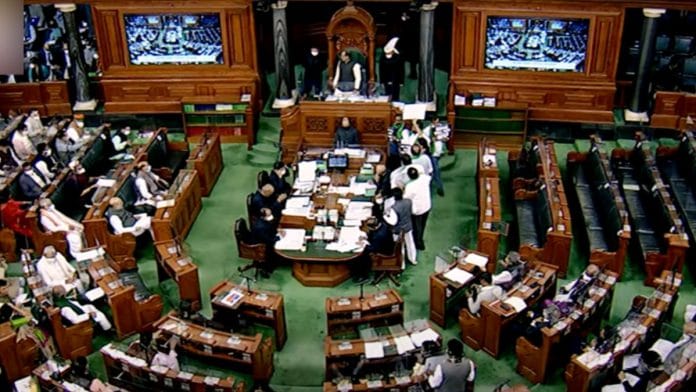New Delhi: The National Crime Records Bureau (NCRB) collected data on cases of mob lynching and hate crime in 2017, but the exercise was discontinued as the data was “unreliable”, the Ministry of Home Affairs (MHA) told the Lok Sabha Tuesday.
The MHA also told Parliament that the word “anti-national” had not been defined under law.
When asked why the NCRB had omitted data on hate crimes, cow vigilantism, and mob lynching from its 2017 report, Minister of State (Home), Nityanand Rai said in a written reply, “In the year 2017, NCRB collected data on cases of mob lynching, hate crimes etc. It was observed that the data was unreliable as these crimes etc. have not been defined. Hence, collection of data in this regard was discontinued.”
When asked if the government had made any efforts to define ‘hate crime’ in the criminal law framework, Rai stated, “The intention of the government is to create a legal structure which is citizen-centric, prioritises to secure life, preserve human rights and provide speedy justice to the vulnerable sections of society.
He added that amending laws “is a continuous process and amendments are made taking into account the views of various stakeholders”.
He further stated that the government through “audio-visual media has also generated public awareness to curb the menace of mob lynching”.
“The government has also sensitised the service providers to take steps to check the propagation of false news and rumours having potential to incite mob violence and lynching,” Rai stated.
‘The term anti-national not defined in statutes’
In a separate submission, the MHA told the Lok Sabha that the word “anti-national has not been defined in statutes”.
All India Majlis-e-Ittehadul Muslimeen (AIMIM) leader Asaduddin Owaisi had asked if the government had defined the meaning of “anti-national” under any legislation, rules or other legal enactment.
To this, Rai replied, “the word ‘anti-national’ has not been defined in statutes. However, there are criminal legislations and various judicial pronouncements to sternly deal with unlawful and subversive activities which are detrimental to the unity and integrity of the country.”
Rai further said that Article 31D of the Constitution, which defined “anti-national activity”, and was “inserted during Emergency”, was omitted by a later amendment.
“In this regard, it is relevant to mention that the Constitution (Forty–Second Amendment) Act, 1976, inserted in the Constitution Article 31D (during Emergency) which defined “anti-national activity” and this Article 31D was, subsequently, omitted by the Constitution (Forty-third Amendment) Act, 1977,” Rai stated.
(Edited by Rohan Manoj)
Also read: No farmer suicide numbers for second year in a row as NCRB releases crime data for 2017






